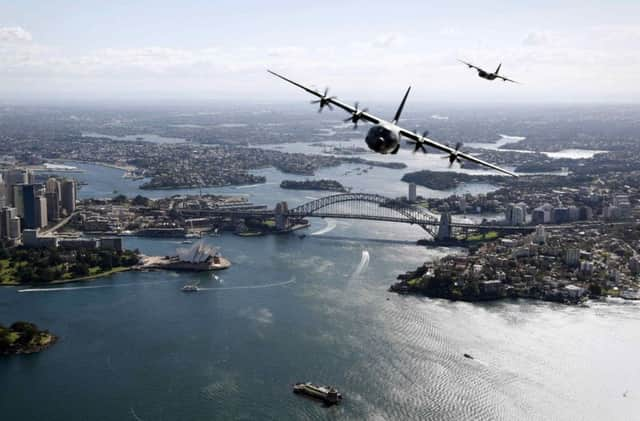Australia put on high alert for terror attack


Prime minister Tony Abbott announced the increase from “medium” to “high”, on a four-tier scale, on the advice of the Australian Security Intelligence Organisation (ASIO).
The domestic spy agency’s director-general, David Irvine, said the threat had been rising over the past year, particularly in recent months, mainly due to Australians joining the IS movement to fight in Syria and Iraq.
Advertisement
Hide AdAdvertisement
Hide Ad“I want to stress that this does not mean that a terror attack is imminent,” Mr Abbott told reporters. “We have no specific intelligence of particular plots.
“What we do have is intelligence that there are people with the intent and the capability to mount attacks.”
The Sydney Morning Herald reported that Mr Irvine had suggested a “Bali-style” attack could be among the threats, in reference to the 2002 bombing of two nightclubs which killed 202 people, including 88 Australians and 27 Britons.
He said recent events in the Middle East had activated people at home who support the extremism propagated by militants in Iraq and Syria.
He said 60 to 70 Australians were among what he said were 10,000 foreign fighters – higher than other recent estimates – in those two countries. He said some had returned home.
“The rhetoric that is now coming out of the Middle East which is encouraging Australians to take violent action increases the possibility of attacks here, and so we see an increase particularly in intent,” he said.
Mr Irvine said returning fighters could be intent on trying to carry out a Bali-style bomb attack but warned it could also be a “lone-wolf” type of incident.
It is the first time the threat level has been elevated above medium since the scale was introduced in 2003.
Advertisement
Hide AdAdvertisement
Hide AdIn the aftermath of the al-Qaeda attacks on the United States on 11 September, 2001, Australia’s threat level was “medium” on a three-tier scale.
Mr Abbott described the new setting as “broadly comparable” to the setting in Britain, where the terrorism threat level was raised last month to the second-highest risk level on a five-tier scale. He said the public would probably notice a greater police and security presence at airports, shipping ports, military bases, government buildings and large public events.
Security at last night’s Australian Football League semi-final in Melbourne, for which 70,000 fans were due to turn out to see Geelong and North Melbourne play, was expected to be much heavier. “Normal life in Australia can and must go on, but we need to be aware that there are people who wish to do us harm and are preparing to do us harm,” Mr Abbott said.
Nicholas O’Brien, head of the counter-terrorism school at Australia’s Charles Sturt University, said the shift from saying a terror attack “could happen” to “is likely” must be based on a significant threat.
It was more remarkable because Mr Irvine made the decision in his final week before he retires after five years at ASIO’s helm, Mr O’Brien said.
“If there were any wriggle room, you’d leave a decision like that to your successor,” he said.
Australia believes some of its citizens are fighting for IS and another al-Qaeda offshoot, Jabhat al-Nusra, also known as the Nusra Front, in Iraq and Syria.
The suspected brother of a suicide bomber killed in Syria and another alleged jihadist appeared in an Australian court on Thursday charged with funding and recruiting al-Qaeda offshoot terrorists in the Middle East.
Advertisement
Hide AdAdvertisement
Hide AdThe Australian government has warned that the IS movement poses an unprecedented domestic terrorism threat. It will introduce tough counter-terrorism laws this month and has announced A$630 million (£360m) in new spending on intelligence, law enforcement and border protection agencies over the next four years to enhance security, including a roll-out of biometric screening at airports.
The country’s attorney-general, George Brandis, stressed that Australian Muslims were the “victims” of “wicked people” “preying” upon young men, recruiting them to fight in wars in the Middle East.
Police raided an Islamic bookshop in Brisbane this week and arrested two men who have both been charged with terrorism-related offences.
Muslim community leader Dr Jamal Rifi told Australia’s ABC network he was not surprised the terror alert had been raised, saying Muslims must be part of the battle against the threat of terrorism.
He had this message for would-be terrorists: “If you are going to harm this country or its citizens in any way, we will be the first to jump on you.”